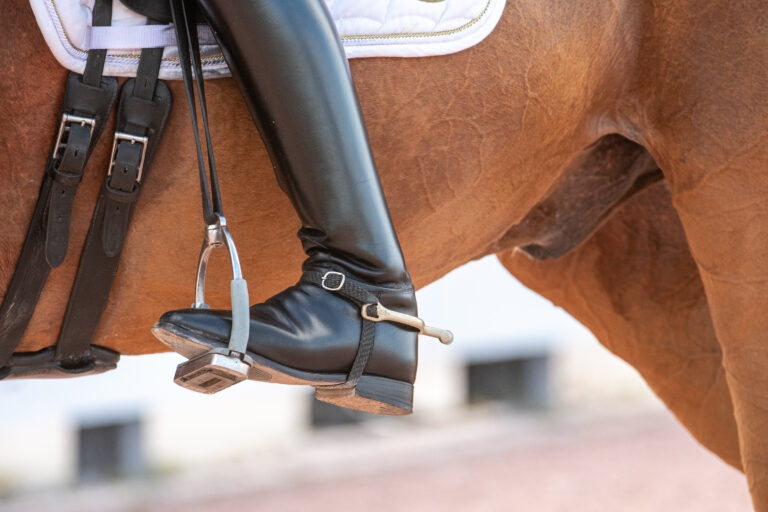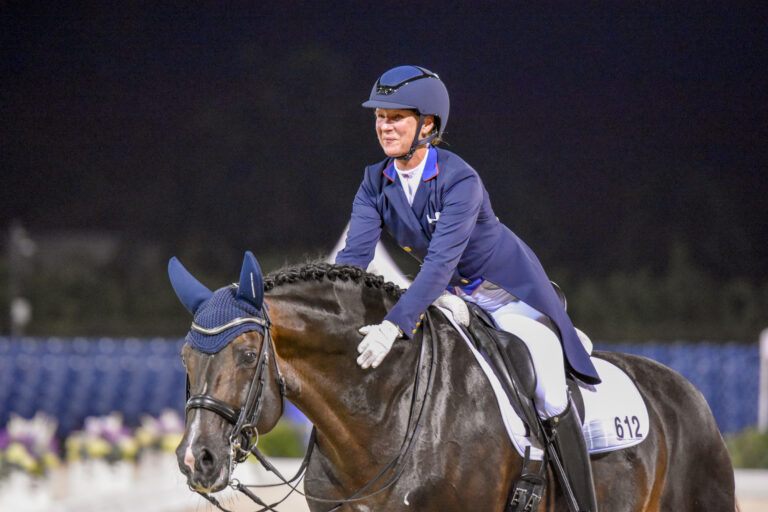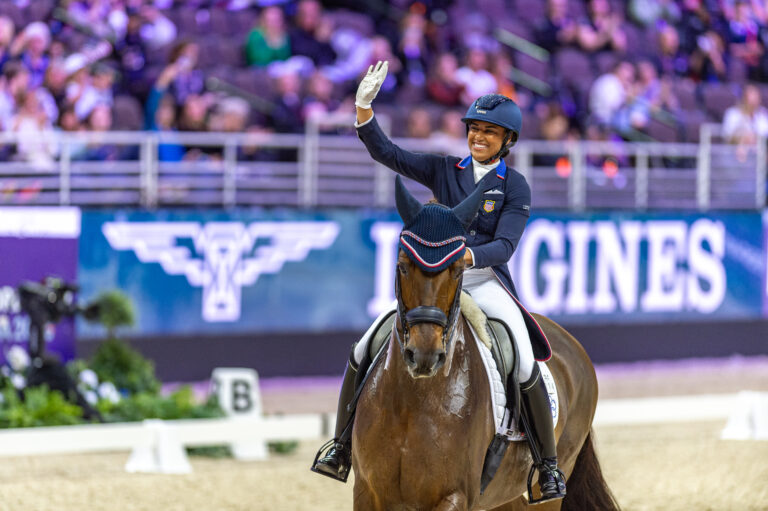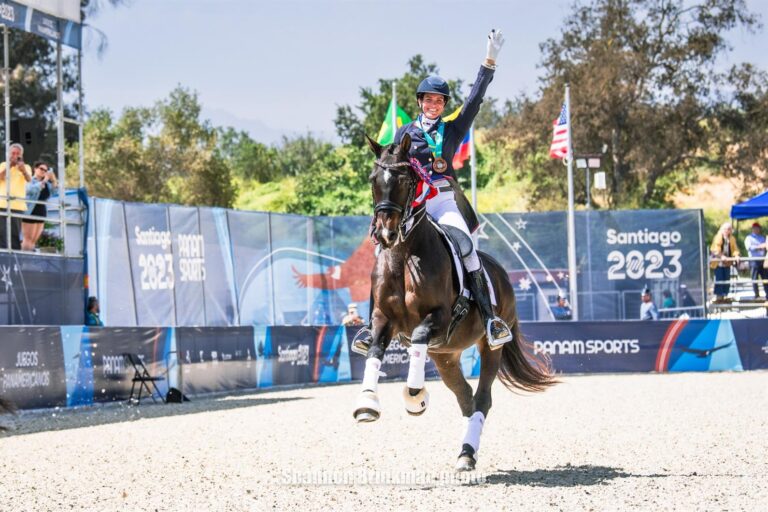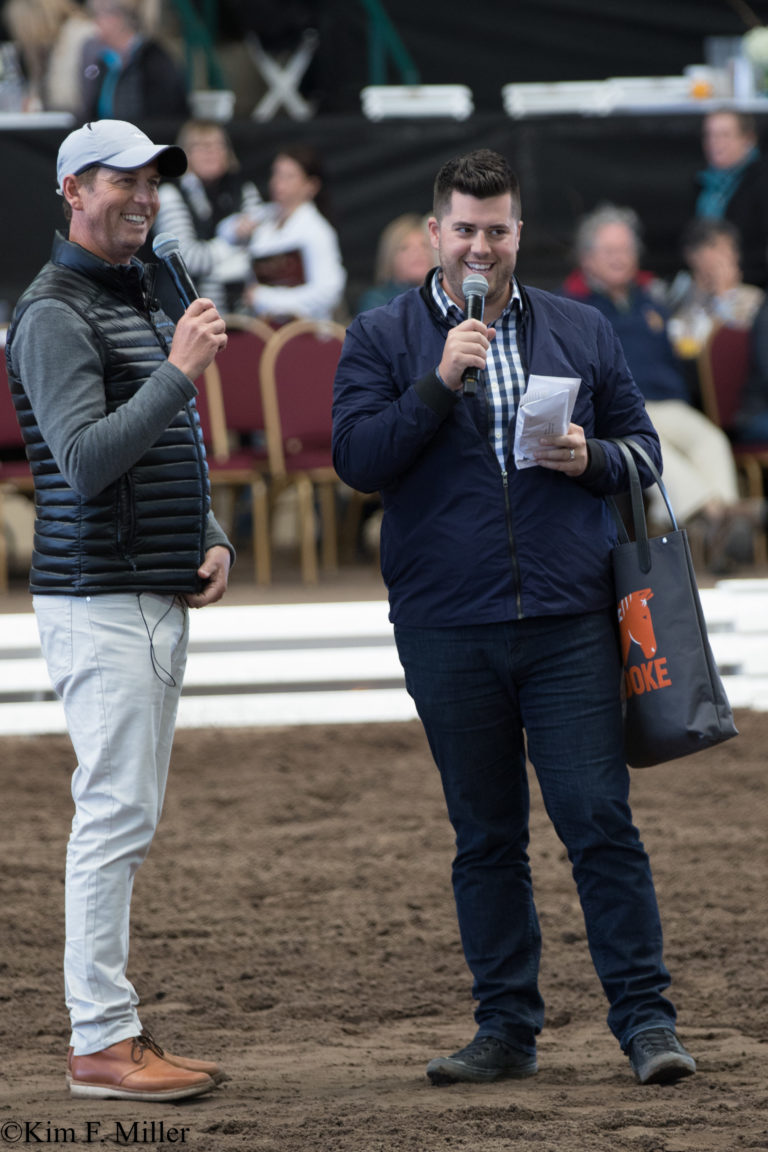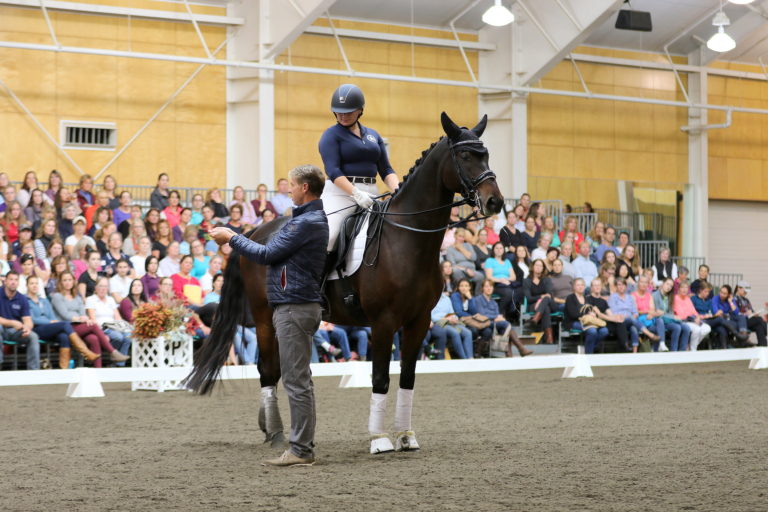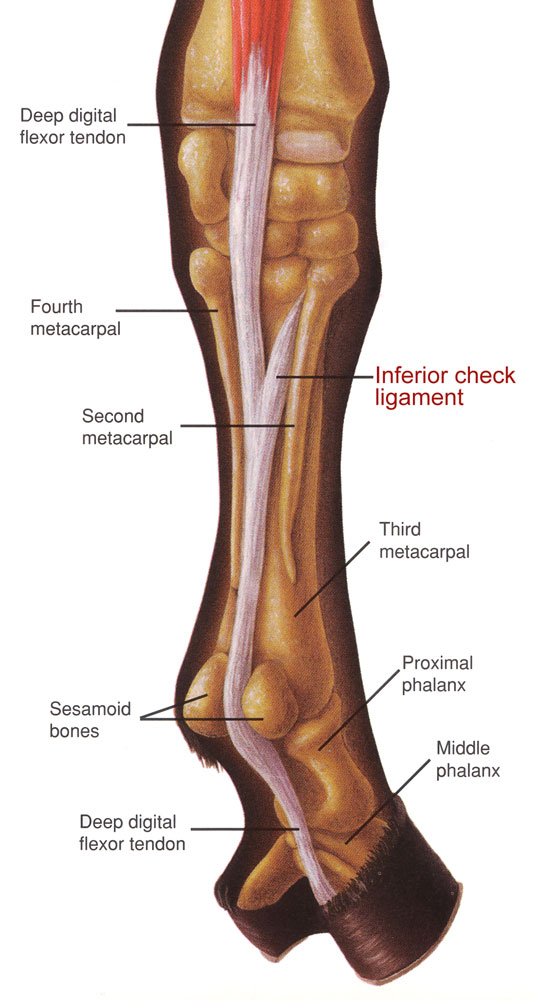At age 56, Steffen Peters is the veteran member of the U.S. Dressage Team, being named to the team with Suppenkasper, a 13-year-old KWPN gelding owned by Four Winds Farm and Akiko Yamazaki. They put together personal best scores at the recent US Equestrian Dressage Mandatory Observation Event, just missing the coveted 80% mark in the Grand Prix Special. Assuming all goes as planned, this will be Steffen’s fifth straight Olympic games. He previously won Team bronze at both the 1996 Atlanta and 2016 Rio Games. He talked with Multimedia Content Director Stephanie Ruff about the 18.2 hand gelding and their path to the Tokyo Games.
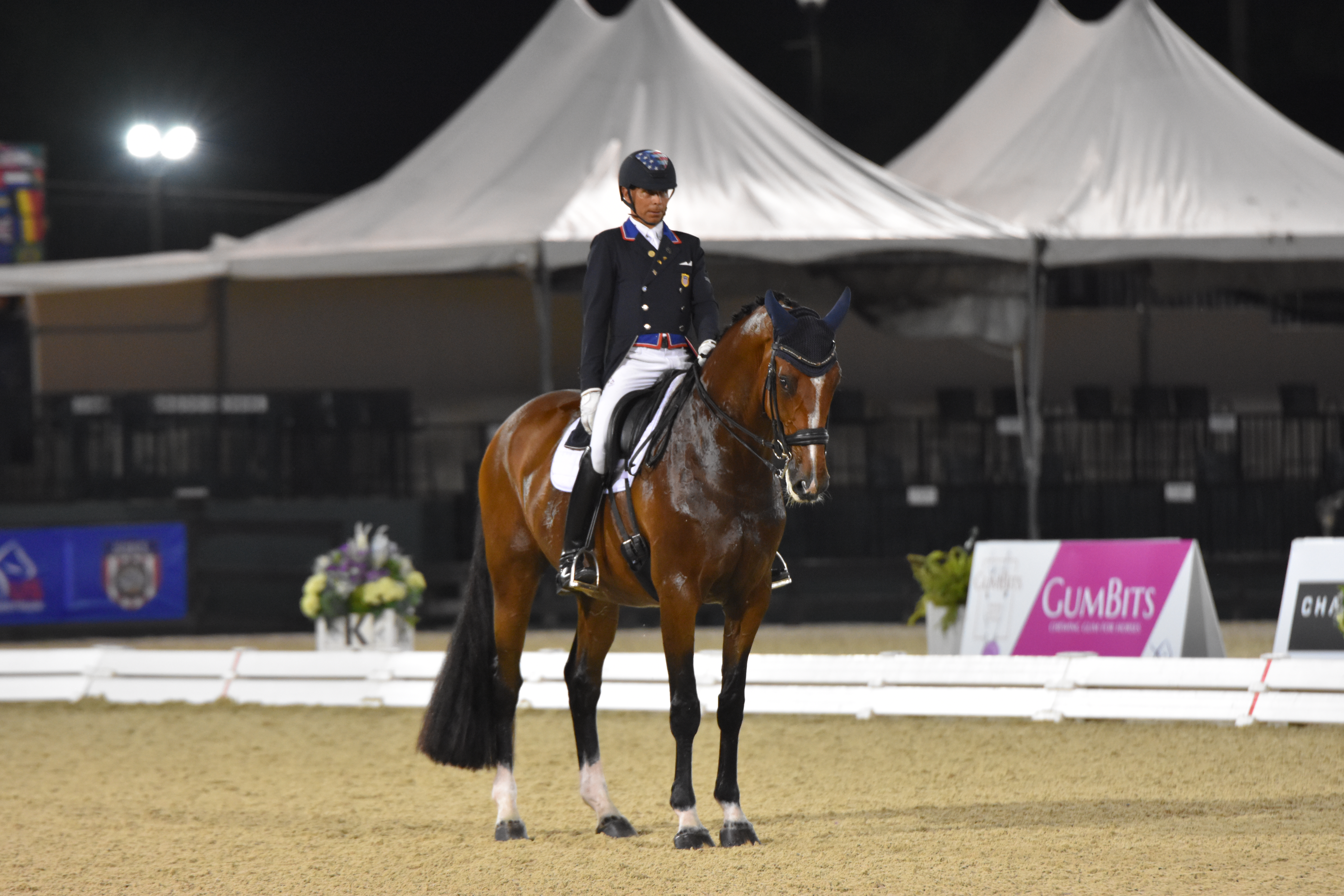
Stephanie Ruff: First of all, we need to know, how did he get the name Mopsie?
Steffen Peters: It’s a funny story because there used to be a time when he was a bit of a hard keeper. When he was with his previous owner, Helen Langehanenberg, after Aachen they decided to give him a little vacation for 10 days, and he spent most of the time in the paddock. When she brought him back in, she couldn’t get a girth around him because he gained so much weight within that time. And in Germany, the funny expression for a heavy set creature is “mops,” so his name became Mopsie because of his voluptuous appearance after 10 days.
Stephanie Ruff: Do you have any kind of specific health care or management routine for him?
Steffen Peters: He’s on the same program as I am. I believe that if there’s a deficiency in something, and a blood result really shows that, then I’m very open to supplements. Other than that, we’re both very old school.
Stephanie Ruff: How did you get the ride on him?
Steffen Peters: I’ve been such a fortunate rider who gets to ride a bunch of horses for a Akiko Yamazaki and Jerry Yang. And since Lombardi, Ravel, Rosie and Legolas, it was time to look for another horse that could represent the USA. And since Akiko and Jerry are both of Asian descent, the Tokyo Olympic Games means quite a bit more to them. It was now four years ago when we started looking for another prospect.
The neat thing was at that time, Helen was still showing Mopsie, so we were able to look at him and watch some shows to see what he’s like in a show environment. He already had a decent show record, and we just did our homework. We really wanted a horse that had the least amount of question marks.
And I think we found a good one. A huge thank you goes to Helen that she even considered letting the horse go. Most riders who have a horse like that don’t, and I felt tickled that she said, “We wouldn’t have sold him, but to Akiko and you, we certainly would consider it.” And then it happened.
Stephanie Ruff: What is he like to ride now?
Steffen Peters: His ride is a lot like his personality. He’s a big teddy bear – a sensitive teddy bear. He loves to be cuddled. And we do this every day. When we come out in the ring after a little walk, he likes to stop, and he turns his head. I scratch his ears and scratch his withers, and that’s part of our routine because he didn’t like to stand still before. So, we had to playfully introduce that to him a bit more and convince him it’s perfectly fine to chill out.
That’s his personality. He’s very much a people’s horse. He loves to be in your lap. I had other horses that said, “Look, we’re done.” They like their quiet time. He would honestly prefer if I sleep with him in his stall.
And that’s how I have to ride him. He knows when he makes a mistake. He knows when he made a mistake, and I’d be the last person to correct it too firmly. Sometimes I just have to tell him, “Look buddy, a little easier. Sometimes a little less is more.” And that’s finally working.
Before he’d put so much effort into a piaffe and then consequently started swaying a little bit. That has drastically improved mainly because of Debbie’s help. And actually, last night (Wednesday’s Grand Prix test) was a test where I could actually ride him a little bit. It’s not always just having the brakes on. That’s how he felt at home, and I’m glad I can take that feeling now into the show.
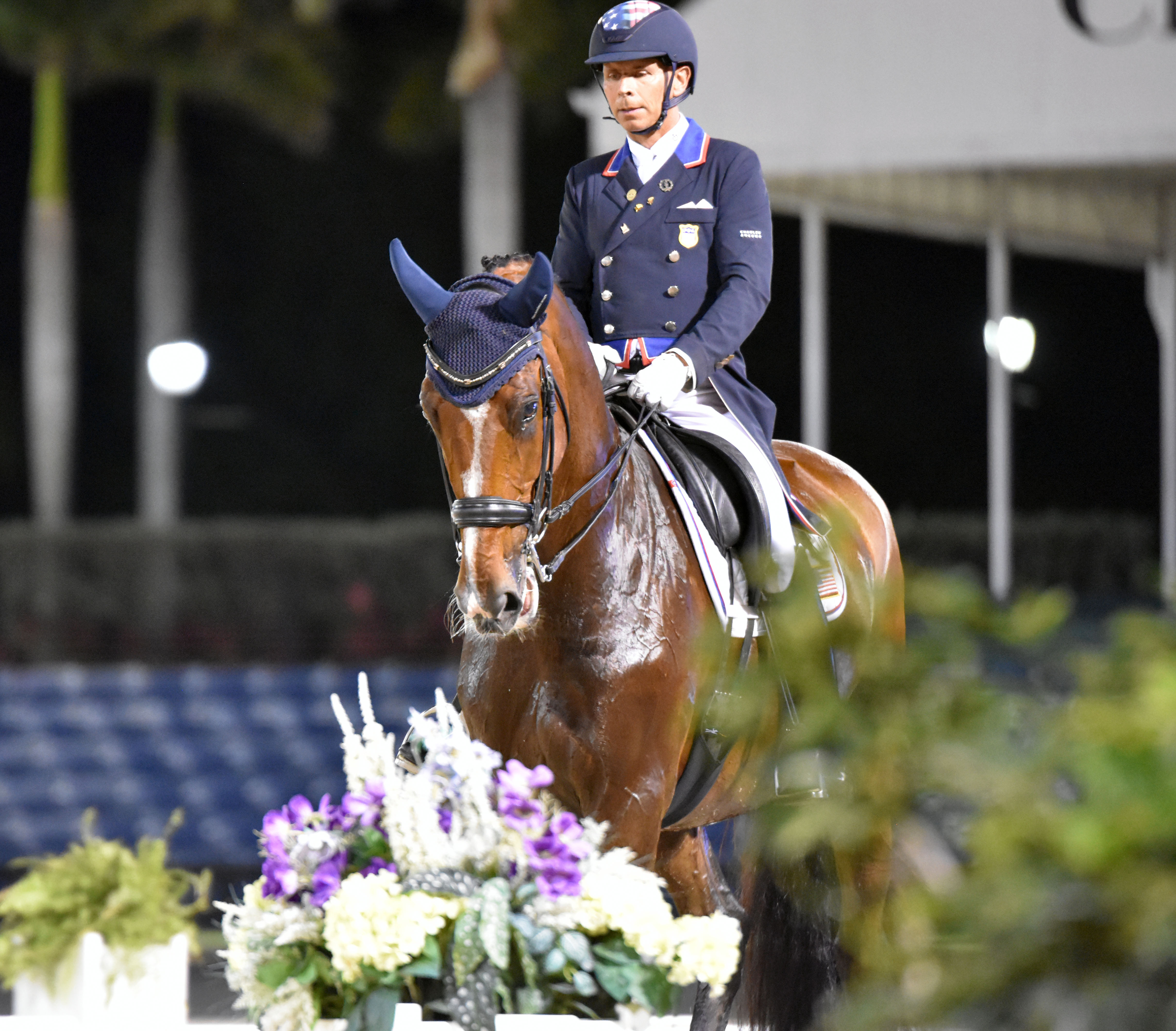
Stephanie Ruff: How has he done with the heat and humidity?
Steffen Peters: He did fine. He’s such an energetic horse, even when it’s super hot like in a climate like Tokyo, I’m not too worried about it. He doesn’t need a long warmup. In my opinion, when I want to take a horse to a major competition, like the Olympic games, I almost like to have him at a stage where you could do a little rising trot warm his muscles up, and you could do the tests without going through a major rehearsal program. Of course, we do it. I don’t want to give Debbie a heart attack. Of course, we have to do our movements, but I like the movements to be so secure that I could possibly do this.
Stephanie Ruff: What are his best strengths?
Steffen Peters: Now it is the extended walk, collected walk, the canter pirouettes, his trot half passes and all the extensions. He has incredible canter extension. A lot of judges give him nines for that.
Piaffe passage is coming along. And of course, that’s the moneymaker in the show arena. And that is still a little bit work in progress, but at least it’s there now reliably.
Stephanie Ruff: Are you still working on the piaffe and passage with him?
Steffen Peters: Yes, for sure. It’s challenging. We could get the piaffe really straight on the rail when he knows there is a barrier. So, we start the half steps on the rail on the long side, and then we turn across towards the center line to keep this mindset that there is still a barrier.
It’s clearly getting better. The scores for piaffe and passage are improving. We used to have a big problem with the irregularity of the hind legs. One hind leg would be in an extended trot. The other one would do a passage. We’ve been able to shorten the passage now to a point where it’s perfectly even.
Stephanie Ruff: Are there one or two training tips that you’ve done that’s really helped him?
Steffen Peters: The main thing was since he has so much energy, I know it’s not a horse that I can get tired. He has endless energy. I learned that I have to build his anxiety or tension into the training program and make it work for us. And that means after just a few movements, I never do more than two or three movements in a row, we always go back to the walk, extended walk, walk. We practice the simple transition, such as extended walk to collected walk, then a halt and a rein back. He would get so fired up with flying changes and piaffe passage that the walk disappeared. So, it is honestly making him a bit more comfortable with the uncomfortable.
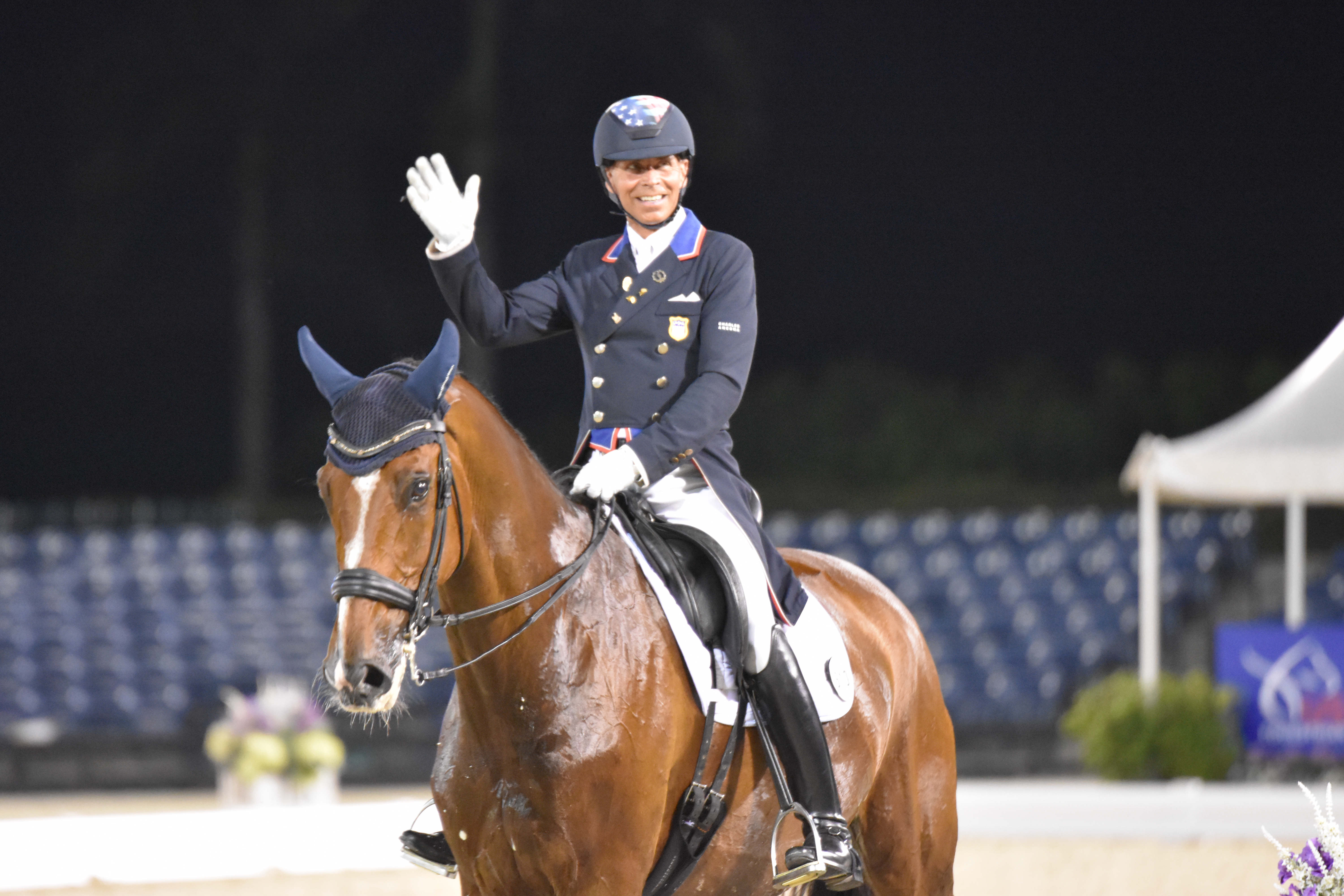
Stephanie Ruff: How are you feeling about U.S. dressage right now?
Steffen Peters: First of all, when I look at previous short lists, the quality that we have now is incredible. It’s easy to just look at the top three or four, but the depth we have now in the country is super exciting.
And that’s nice for me because my career is a bit more limited than others. It’s nice too, to see the younger generation, the generation behind me, really stepping up to the plate.
Stephanie Ruff: This past year has been very much on hold. Has your physical or mental preparation changed because it has been such a “will it or won’t” sort of thing?
Steffen Peters: We’ve been waiting for a year and a half but waiting for the Olympic games compared to what the rest of the world went through is completely insignificant.
To be honest, I was bummed about the World Cup last year (which was scheduled to be in Las Vegas, Nevada.) To ride in front of an American dressage crowd, that is still a feeling I can’t describe. I can’t put it in words. I’ve tried many times. I hope all of us get to do that in a packed stadium soon.
But as far as the Olympic games, for Mopsie and me, it was beneficial to wait another year and have him mature. I said that last year too, that the extra year could really help us. And I had a feeling that he would be better this year.
Stephanie Ruff: Is there anything else you would like to add?
Steffen Peters: Yes. Huge appreciation goes to my team behind Mopsie. His amazing groom, Eddie Garcia, has been with us for over 12 years now. My amazing wife, Shannon, who always has encouraging and positively criticizing words. Tom Meyers, our physical therapist, our amazing vet, Dr. Rodrigo Vasquez and of course Jerry and Akiko. What a lucky guy I am that I might be able to do this for five Olympic games in a row. That’s very special, and there’s not a day where I don’t think about the deep appreciation that I feel for Akiko and Jerry.


